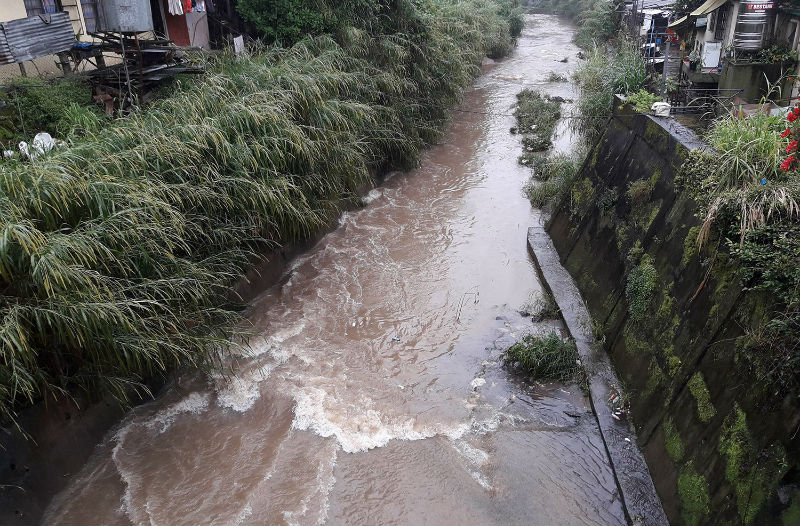BAGUIO CITY – More than two hundred million pesos is being proposed by an inter-agency body to bankroll the implementation of the Balili River Flood Control and River Park project that will help in cleaning up a large portion of the river system which starts from Baguio City to Naguilian, La Union, apart from serving as an ecotourism destination in La Trinidad town.
Regional Director Reynaldo S. Digamo of the Cordillera office of the Environmental Management Bureau (EMB-CAR) revealed what is being awaited are the endorsements from the Administration Council of the Benguet State University (BSU) and its Board of Regents for the Department of Public Works and Highways (DPWH) to include the funding of the project in its annual budget next year.
“We hope that BSU will be able to do its important role for the realization of the project because it will be a multi-approach in addressing pressing concerns not only on pollution but also in dealing with other problems of the locality,” Digamo stressed.
Among the major components of the multi-year project include the put up of flood control structures in critical portions of the river system that passes through the property of the State-run higher education institution, stone walling, put up of an eco-park, dredging of portions of the Balili river, put up of biked lanes and the construction of a road network geared towards helping ease the monstrous traffic congestions in the capital town’s main highway.
According to him, the project was conceptualized during the previous administration and was endorsed by the various sectors, thus, the funding of the project is being awaited once the BSU administration issues the appropriate endorsements on time so that the DPWH will include in its annual budget the funding for the project that will serve as an added tourist destination in the town.
Balili river is considered as a major body of water that coves three major cities and provinces in Northern Luzon but its water quality rapidly deteriorated due to the unabated dumping of human and animal waste by residents living along the river banks and its tributaries, thus, the need for a proactive participation from no less than the people to realize the primary objectives of improving the system’s water quality as one of the Water Quality Management Areas being closely watched by the government.
Digamo urged the public to aggressively implement pro-environment activities and programs designed to improve the river system’s water quality to prevent its final deterioration as dead river once its water quality will worsen primarily because of human activities.
He expressed optimism that once stakeholders will realize the importance of a holistic approach in addressing the pollution problem of the river system, there will be a consolidated effort to clean the river from its pollutants and convert it into a worthwhile recreation area beneficial to the greater majority of the populace.
By HENT
Banner Photo by: Joseph B. Manzano













